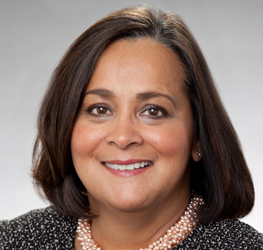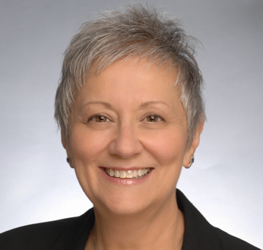On November 1, 2011, the Centers for Medicare and Medicaid Services (CMS) issued the final rule for the 2012 Physician Fee Schedule, to be published in the Federal Register on November 28, 2011. One of the anticipated sections of the Physician Fee Schedule Final Rule was a clarification of the application of the 3-Day DRG Payment Window for pre-admission non-diagnostic services. The 3-Day Window was long interpreted as applying to diagnostic services furnished in a hospital’s provider-based departments or entities. This 3-Day Window required the bundling of all pre-admission diagnostic services furnished within three days of an inpatient admission in the inpatient claim. Medicare also required the bundling of pre-admission non-diagnostic services furnished within three days before the inpatient admission only if there was an exact match of the principal ICD-9 CM diagnosis code for the outpatient encounter and the inpatient admission.
This final point was materially changed by Section 102 of the Preservation of Access to Care for Medicare Beneficiaries and Pension Relief Act of 2010 (PACMBPRA) (PUB.L.111-192) (June 25, 2010). Section 102 removed the “exact match” rule and introduced a broader notion of which non-diagnostic services must be bundled with the inpatient service. Under the new formulation, the bundling must occur for services that are “clinically related” to the reason for the patient’s admission. While abandoning the exact match rule, new ambiguity is introduced into what clinically related might be.
Key questions for the provider community have included:
- What does it mean for a service to be clinically related?
- What types of physician practices and other entities are wholly owned or wholly operated?
- How should physician practices and hospitals go about bundling and correctly claiming costs for the services?
- What should providers do if they find errors in this regard?
We discuss each of these points below.
1. What does it mean for a service to be clinically related?
CMS has provided little guidance on what clinically related means. The agency did, however, introduce a notion that the clinically related determination must be made on a case-by-case basis. Moreover, CMS has stated that a service may be clinically related to the reason for the inpatient admission “regardless of whether the inpatient and outpatient diagnoses are the same.” This last point is rather curious. Take, for example, a patient suffering from depression — a co-morbidity — and diabetes. If that patient receives outpatient therapy services for depression prior to an amputation associated with the diabetes, the diagnosis of depression and diabetes would be entirely distinct. Yet one might argue that pre-surgical treatment for depression would be clinically related to the reason for the inpatient admission, the amputation. Without some nexus between the diagnoses, it would seem that almost any pre-admission services could be arguably clinically related to the reason for the inpatient admission. Though CMS may not have intended such a far-reaching interpretation, it is possible that someone would make that argument.
Also important in the Final Rule preamble is an expectation on the part of CMS that “a hospital would be required to maintain documentation in the beneficiary’s medical record to support [its] claim that the outpatient non-diagnostic services are unrelated to the beneficiary’s inpatient admission.” Thus CMS is saying to the provider community that not only must providers conduct the bundling, but they also must maintain documentation on services that are not bundled to explain why they did not bundle them. CMS remains aware that the inclusion of charges for diagnostic and non-diagnostic services could increase the probability that the claim for the inpatient admission would garner outlier payments. The policies described above may lead to that trend.
2. What types of physician practices and other entities are wholly owned or wholly operated?
The Final Rule and preamble provide little additional guidance on what types of entities are wholly owned or operated. CMS clarified that the rule is not limited to only wholly owned/operated physician practices but any other wholly owned/operated entity providing outpatient services.
CMS did indicate that rural health clinics (RHCs) and Federally Qualified Health Centers (FQHCs) are not subject to the 3-Day Window policy. This is because they are paid an all-inclusive rate. Critical access hospitals (CAHs) are, somewhat similarly, not covered by the 3-Day Window rule, as they are cost-reimbursed.
3. How should physician practices and hospitals go about bundling and correctly claiming costs for the services?
The bundling rule applies to outpatient services in hospitals’ wholly owned/operated entities, including those treated and billed as free-standing by the hospital. In the Final Rule, CMS indicated it thought most wholly owned/operated entities were already departments of the hospital. However, many such entities are not hospital departments, nor are their costs co-mingled with the hospital’s costs. Thus, there are two issues: 1) whether to transfer the facility component charges from the free-standing entity claim to the inpatient hospital claim; and 2) whether to transfer the “cost” of the bundled services to the applicable hospital department.
CMS states in the Final Rule that “hospitals should accumulate the costs incurred and the adjustments required for these services and report as costs with related organizations on the Medicare cost report.” This means cost report preparers will need to make adjustments on Worksheet A-8 or A-8-1 to add the costs for the pre-admission services provided in the free-standing entity to the appropriate department in the hospital’s annual Medicare cost report, to achieve a proper matching of revenues and expenses. Calculating costs for these pre-admission diagnostic and non-diagnostic services may be somewhat challenging, but hospitals should try to do so due to the use of the Medicare cost report for establishing relative cost-based weights used for future rate setting.
4. What should providers do if they find errors in this regard?
PACMBPRA is already in effect, but CMS has taken time to introduce the regulations necessary to fully carry out its intent. In the Physician Fee Schedule Final Rule for 2012, CMS delayed implementation from January 1, 2012 to July 1, 2012. CMS’s statement in this regard is extremely broad. “In light of the consistent message from commenters that the billing and accounting systems are not yet coordinated, we are concerned that many hospitals and their wholly owned or wholly operated entities will not be able to establish the internal procedures and communication pathways needed to comply with the law by January 1, 2012. For this reason we will delay implementation until July 1, 2012.1 We will require hospitals and their wholly owned or wholly operated entities to fully coordinate their billing and to properly bill for diagnostic and related non-diagnostic services subject to the 3-Day DRG Payment Window policy beginning July 1, 2012.” This is a broad statement of the delayed enforcement of the law by CMS.
Finally, CMS did introduce one comment raising an uncomfortable enforcement specter. Apparently, one commenter indicated that errors in submission of claims to Medicare without the new appropriate modifier would “risk an overpayment or charges of filing a false claim.” CMS did not directly address the reference to both the overpayment and false claim issue, but it can be expected that the agency does not believe that minor errors in this highly technical area should rise to that level without a knowing violation.
1For certain hospitals that are not subsection (d) hospitals such as psych, rehab, LTCH, children’s hospitals, and cancer hospitals, bundling is a 1-Day Window.
Legal News Alert is part of our ongoing commitment to providing up-to-the-minute information about pressing concerns or industry issues affecting our clients and our colleagues. If you have any questions about this update or would like to discuss this topic further, please contact your Foley attorney or the following:
Lawrence W. Vernaglia
Boston, Massachusetts
617.342.4079
[email protected]
Chris E. Rossman
Detroit, Michigan
313.234.7112
[email protected]
Maria Gonzalez Knavel
Milwaukee, Wisconsin
414.297.5649
[email protected]
Judith A. Waltz
San Francisco, California
415.438.6412
[email protected]
Denise Rios Rodriguez
Los Angeles, California
213.972.4678
[email protected]
The authors also gratefully acknowledge information provided for this report by:
Cheryl Storey, CPA
Partner, Moss Adams LLP
503.478.2132
[email protected]



